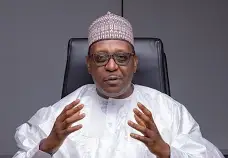
In commemoration of World Schizophrenia Day, Korede Abdullah, South West Correspondent for Africa Health Report (AHR), presents a special report spotlighting the often-overlooked struggles faced by individuals living with schizophrenia across Nigeria’s South West region.
Treated as Objects of Fear
In a makeshift prayer room inside a rundown white garment church in the outskirts of Lagos, a man in his late thirties groans. His weird gaze sends frightening messages to the onlooker. The man is manacled and wailed intermittently about the pricking rusting chains. His ankles, scarred and swollen, are bound to a wooden post—his supposed deliverance from “evil spirits.”

This is not an isolated scene. Across Nigeria, are countless scenes. Some unfold as unscripted dramas with onlookers ‘catching funs’ on a daily bases unmindful of the debasing effects on these individuals. Unfortunately, misunderstanding the health conditions of the affected individuals.
As Africa Health Report (AHR) findings show, in many parts of Nigeria, individuals with schizophrenia and other mental illnesses are still being treated as objects of fear and shame, hidden away or subjected to inhumane conditions under the guise of spiritual healing.
As the world marks World Schizophrenia Day, Nigeria stands at a painful crossroads of neglect, ignorance, and a worsening mental health crisis.
Schizophrenia
But what is Schizophrenia? According to the National Institute of Medical Health (NIMH), Schizophrenia is defined as a mental disorder characterized by disruptions in thought processes, perceptions, emotional responsiveness, and social interactions. Although the course of schizophrenia varies among individuals, schizophrenia is typically persistent and can be both severe and disabling.
Stigma Stronger Than Science
A clinical psychologist, Dr. Tochukwu Orjiakor, in an interview with Nairametrics, emphasizes that mental illness in Nigeria is still widely misunderstood. “Mental illness is viewed as a moral failing, not a medical condition,” he told Nairametrics. This perception fuels stigma that silences sufferers and isolates families.

Despite an estimated one in four Nigerians experiencing some form of mental illness, less than 10% receive proper treatment. For schizophrenia in particular, where delusions, hallucinations, and social withdrawal are common, the mislabelling of sufferers as “mad” or “possessed” deepens their isolation.
The Brain Drain of Hope
Nigeria’s mental health workforce crisis is dire. With fewer than 150 psychiatrists for a population exceeding 200 million, the treatment gap is vast and growing. Dr. Orjiakor points to a massive exodus of professionals: “The brain drain has left our system fragile. People are desperate, turning to unqualified spiritual or traditional healers.”
While some institutions and companies have started implementing mental health awareness campaigns, they are outpaced by community-level neglect. Without empowering grassroots organizations, Nigeria’s mental health system will remain a house built on sand.
Few Doctors, Heavy Burden
Nigeria’s mental healthcare system is buckling under the weight of too few professionals and worsening social conditions.
Dr. Samuel Aladejare, Senior Registrar in Psychiatry and former President of the Association of Resident Doctors, Yaba, blames brain-drain, tedious recruitment, and limited training slots for the scarcity of psychiatrists.
“If the few who finally became psychiatrists are practising in the country, it would have been better; but the issue is that 80 per cent of them are migrating to other countries,” he said.

With only four doctors attending to over 200 patients daily, he urged the Federal Government to offer better incentives and create more opportunities to train and retain psychiatric doctors.
Echoing similar concerns, Professor Jibril Abdulmalik of UCH Ibadan stressed the impact of worsening social conditions on mental health.
Speaking at an Annual General Meeting of the Association of Resident Doctors in Lagos, he noted, “We need to have a peaceful environment devoid of crime, insecurity… in order for [people] to enjoy good mental health.”
He called on the government to address poverty, insecurity, and poor living standards as key factors driving mental health challenges.
“It is the statutory responsibility of the government to guarantee safety of the economy and ensure that social determinants are put in place to improve the overall wellbeing,” he added.
When Religion Replaces Treatment
Dr. Azubuike Aliche, Secretary of the Institute of Human Behaviour, warns against the dangerous blend of faith and fear. “Many people still believe mental illness has supernatural roots,” he said.
These beliefs drive families to spiritual homes instead of hospitals, resulting in scenes like the chained man in Lagos. Some churches and traditional centers, lacking regulation, subject individuals to beatings, starvation, and chained confinement. These practices, while seen as “deliverance,” often amount to gross human rights violations.
Beyond the Label: Reclaiming the Story
This year’s World Schizophrenia Day theme, “Rethink the Label: Reclaim the Story,” is particularly relevant in Nigeria. Dr. Aliche highlights how labels dehumanize. “Calling someone ‘crazy’ or ‘mad’ reduces their identity to an illness,” he explains.
Instead, he advocates for narrative change through storytelling—sharing lived experiences of those with schizophrenia to foster empathy and understanding. The goal, he says, is to replace fear with familiarity, suspicion with support.
Beyond the Figures, Real Lives
Schizophrenia, which affects one in every 300 people globally is supported by data from the World Health Organization (WHO). According to WHO, schizophrenia affects approximately 24 million people worldwide, equating to about 1 in 300 individuals, or roughly 0.32% of the global population.
This prevalence rate is consistent across various reputable sources, including Healthline and Medical News Today, which also reference WHO data.

AHR gathered that the prevalence estimates can vary slightly depending on the methodologies and populations studied. For instance, the U.S. National Institute of Mental Health (NIMH) reports international prevalence estimates ranging from 0.33% to 0.75% among non-institutionalized individuals.
The figure of 1 in 300 people globally affected by schizophrenia is a widely accepted estimate, particularly as reported by the WHO.
The condition often remains misunderstood and heavily stigmatized. Symptoms may include hallucinations, delusions, disorganized thinking, reduced emotional expression, and social withdrawal.
Experts say schizophrenia, like many mental health disorders, demands greater public awareness and professional intervention to ensure sufferers are not left in silence or shame.
Nigeria’s Widening Mental Health Gap
The crisis is especially dire in Nigeria, where mental health care is in a perilous state. “Mental healthcare is in a sorry state given that we have more than 60 million Nigerians suffering from various mental illnesses,” lamented Professor Taiwo Obindo, President of the Association of Psychiatrists in Nigeria (APN).
In an interview with the News Agency of Nigeria, he expressed concern that only 10 percent of those affected receive proper care, leaving a staggering 90 percent untreated.
Challenges such as widespread myths, traditional beliefs, poor distribution of mental health facilities, and a shrinking workforce of mental health professionals continue to undermine progress.
“Knowing that 60 per cent of Nigerians live in the rural areas, they do not have access to appropriate care and have to travel long distances to access facilities,” he explained.
While efforts like the Mental Health Bill signal hope, its lack of implementation has left Nigeria bound to colonial-era laws like the “lunacy act.” Until concrete steps are taken, millions will remain unheard—much like the very voices that define schizophrenia.
Symptoms like disorganized thinking, paranoia, and social withdrawal make reintegration into society difficult. Dr. Aliche notes that families play a crucial role: “Supportive relatives can reduce relapse rates significantly.”
But in a country where many caregivers are also overwhelmed by poverty and misinformation, families sometimes become part of the problem rather than the solution.
FG Policy: Fixing Mental Gaps
Experts laud the Nigerian Federal Government’s commitment to tackling mental health challenges through its National Mental Health Policy 2023 and the National Mental Health Act 2021, which aim to make mental health services more accessible, affordable, and evidence-based.
They emphasize that the integration of preventative, promotive, and curative approaches—alongside community participation and collaboration across various sectors—offers a comprehensive strategy to reduce mental illness nationwide, provided it is effectively implemented and adequately funded.
Policy Without Practice
Nigeria has produced mental health policies rich with promising ideas—but implementation is another story. Dr. Orjiakor laments, “Policy documents with fantastic ideas are collecting dust while communities remain unchanged.”
For lasting reform, experts suggest an urgent need for mental health integration into primary care, digital counseling platforms, and community education programs. Without consistent investment in awareness and access, mental health policy remains more rhetorical than revolutionary.
The Cost of Staying Silent
When the Africa Health Report (AHR) correspondent visited the neuro-psychiatric hospital in Yaba, Lagos, the haunting silence and erratic murmurs of patients told a story beyond words—one man clutched a worn Bible, mumbling to himself, while a young woman sat motionless on a bench, eyes vacant and distant.
The cost of untreated schizophrenia was painfully evident: most patients depended on family members not only for daily care but also for costly out-of-pocket treatment, with little to no government support.
The burden, both emotional and financial, weighed heavily on relatives who often sacrificed work and stability to tend to loved ones caught in the grip of an illness still shrouded in stigma and neglect.
A New Way Forward
True change, experts insist, must begin in the classroom and the clinic—with education that dismantles stigma and redefines mental illness as a health condition, not a curse or crime. Dr. Orjiakor and Dr. Aliche call for more than sympathy: they demand inclusive storytelling, bold investments, and a system that empowers those who serve on the frontlines of mental health.
Yet before reforms can take root, one essential act remains: to break the chains—literal and invisible—that bind thousands of Nigerians with schizophrenia. Recovery is not a miracle; it is a right. Dignity is not a privilege; it is overdue.
On this World Schizophrenia Day, Nigeria faces a moral reckoning. The time has come to stop debating the label and start defending the lives behind it.



